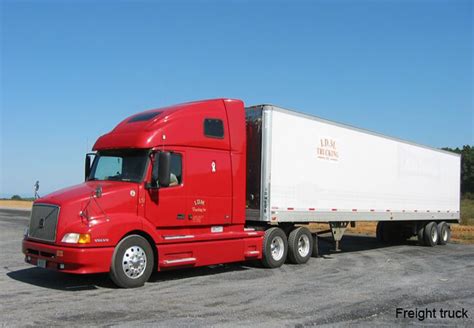CDL: The Ultimate Guide to Job Placement
Securing a well-paying job after obtaining your Commercial Driver's License (CDL) is a realistic goal, but it requires a strategic approach. This comprehensive guide outlines the steps you need to take to maximize your chances of successful job placement, from choosing the right CDL class to navigating the interview process. We'll also address common questions surrounding CDL job placement.
What Types of CDL Jobs Are Available?
The CDL opens doors to a variety of driving positions, each with its own unique requirements and responsibilities. Understanding these differences is crucial in targeting the right opportunities.
- Over-the-Road (OTR) Driving: This involves long-haul trucking across state lines, often requiring extended periods away from home. It typically offers higher pay but demands significant time commitment and resilience.
- Local Driving: These jobs involve shorter routes, usually within a specific region or city. This provides more consistent home time but may offer lower pay compared to OTR.
- Regional Driving: This falls somewhere between OTR and local driving, with routes covering a wider area but still allowing for more frequent home time than OTR positions.
- Specialized Hauling: This encompasses specialized vehicles and cargo, such as tankers (hazmat), flatbeds, heavy machinery, or even garbage trucks. These roles often require additional endorsements beyond the basic CDL.
What CDL Class Should I Get?
The type of CDL class you obtain directly impacts the jobs you can apply for. Choosing the right class is a critical first step.
- Class A CDL: This is the most comprehensive license, allowing you to operate combination vehicles with a gross combined weight rating (GCWR) of 26,001 pounds or more, including a towed vehicle of over 10,001 pounds. This is suitable for OTR, regional, and many specialized hauling jobs.
- Class B CDL: This license allows you to operate vehicles weighing 26,001 pounds or more, or vehicles towing a vehicle over 10,001 pounds. Examples include large buses or trucks hauling smaller trailers.
- Class C CDL: This is for vehicles that weigh less than 26,001 pounds but may still transport hazardous materials or passengers. This is typically required for smaller trucks or vehicles carrying passengers.
How to Find CDL Jobs: Your Job Search Strategy
Finding the right CDL job requires a proactive approach. Here's a breakdown of effective job search strategies:
- Online Job Boards: Utilize websites like Indeed, Monster, and TruckingJob.com, focusing your searches based on the CDL class you possess and your preferred driving style (OTR, local, regional).
- Company Websites: Many trucking companies have dedicated careers pages on their websites. Applying directly shows initiative and allows you to research company culture and benefits beforehand.
- Networking: Attend trucking industry events, connect with other drivers, and leverage your professional network. Word-of-mouth referrals can be highly effective.
- Recruiters: CDL recruiters specialize in connecting drivers with trucking companies. They can simplify the job search process and potentially access exclusive opportunities.
What to Expect During the CDL Job Interview?
The interview process is your chance to showcase your skills and experience. Be prepared to answer these common questions:
- "Tell me about your driving experience." Highlight your relevant experience, emphasizing safe driving practices and adherence to regulations.
- "Why are you interested in this position?" Demonstrate your understanding of the role and the company, expressing genuine enthusiasm.
- "How do you handle stressful situations on the road?" Showcase your problem-solving skills and ability to remain calm under pressure.
- "What are your salary expectations?" Research average salaries for similar positions in your area to provide a realistic figure.
- "Do you have any questions for me?" Always have thoughtful questions prepared to show your engagement.
What Are the Benefits of Having a CDL?
Beyond the obvious career opportunities, a CDL offers several significant advantages:
- High Earning Potential: Experienced CDL drivers can command competitive salaries and benefits packages.
- Job Security: The demand for commercial drivers consistently remains high, ensuring relative job security.
- Travel Opportunities: OTR driving allows you to explore different parts of the country.
- Career Advancement: With experience, you can advance to specialized roles, management positions, or even start your own trucking business.
What are the Common Challenges of Finding a CDL Job?
- Finding a company that fits your needs: Not all companies are created equal. Some offer better pay, benefits, home time, and equipment than others.
- Meeting minimum experience requirements: Many companies require a certain number of months or years of driving experience.
- Passing background checks and drug tests: These are standard procedures for the trucking industry.
How Can I Improve My Chances of Getting a CDL Job?
- Gain additional endorsements: Obtaining endorsements for hazmat, tanker, or other specialized vehicles expands your job prospects.
- Obtain a clean driving record: A history of accidents or violations can significantly hinder your job search.
- Invest in your professional development: Continuous learning through refresher courses and training programs can make you a more competitive candidate.
This guide provides a strong foundation for your CDL job search. Remember to be persistent, proactive, and prepared, and you will greatly increase your chances of landing your ideal CDL job.

